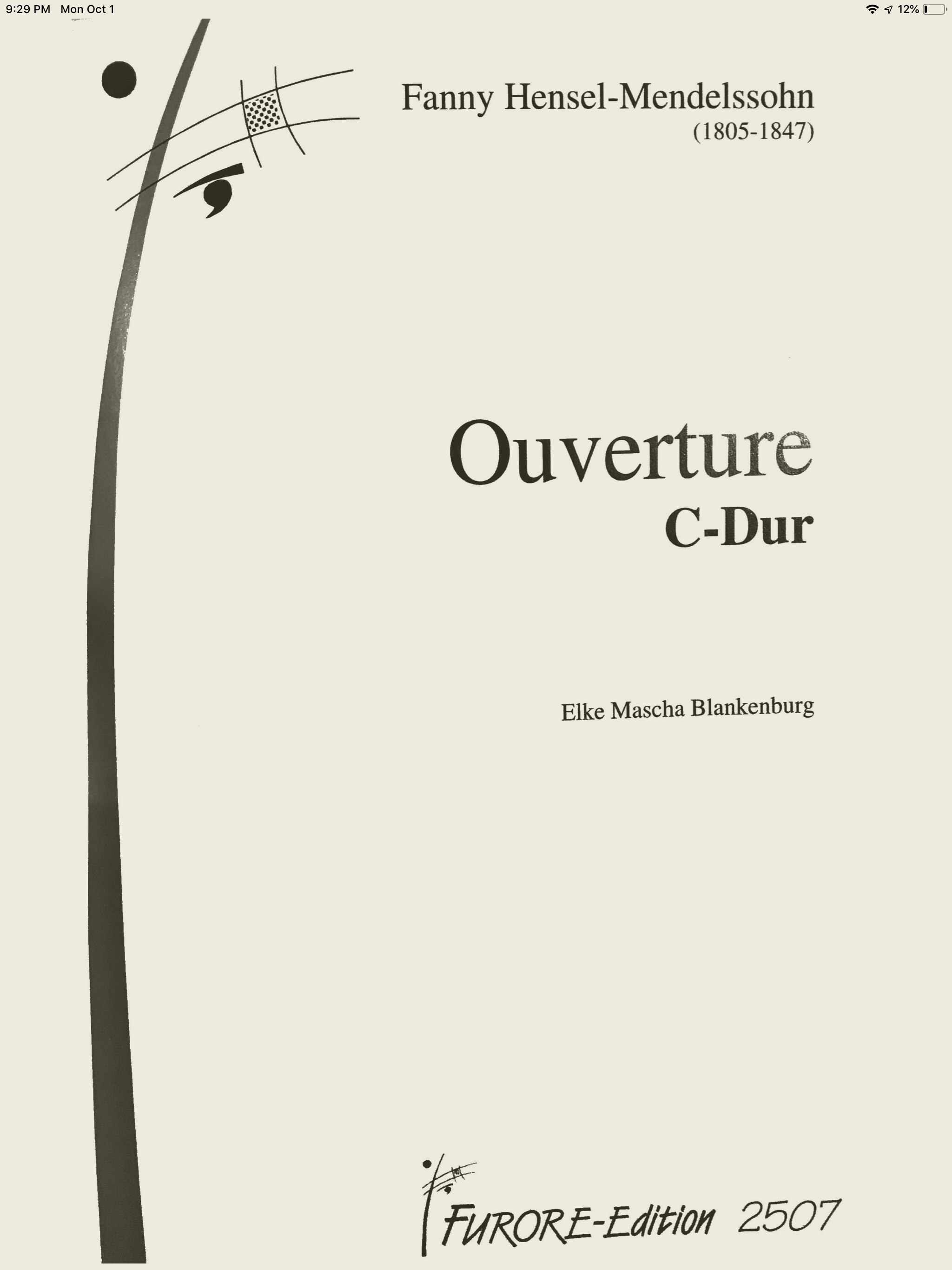It is with some embarrassment that I admit spending far too long under the delusion Fanny Mendelssohn never composed an orchestral work. While superficially familiar with her piano works and lieder (admittedly the main body of her output), it wasn’t until doing the due diligence of researching composers for this project that I came across her Overture in C. It is with regret, then, that I realize what I have missed in the meantime. Thankfully, it seems a number of conductors have discovered this as well, and I was pleasantly surprised to see this work included on the 2018-19 season of the “Big Five” orchestra across town from me.
Read MoreFor today’s entry, we at last look at music by a living composer (b. 1928), the Scottish-born Thea Musgrave. She belongs to a different category than the others yet addressed in this project—Smyth, Farrenc, and Crawford—in that she has led what can comfortably be labelled as a major international career. As I had not encountered her music firsthand, however, I wished to rectify the situation, and as she still belongs to that criminally underrepresented group of “not-euro-man,” she still belongs to this project. As a point of departure we shall examine her Concerto for Orchestra, as in the present literature it seems to represent a crucial point in her development (and who doesn’t love a good orchestral showcase?).
Read MoreWhile we may be early on in this project, today’s work could turn out to be a serious contender for “most useful” piece studied. Pieces for chamber orchestra that include only single woodwinds are always welcome finds. Ruth Crawford Seeger’s Music for Small Orchestra not only fits into this family of instrumentations, but is a perfect companion perhaps the most famous American chamber orchestra piece in the repertoire—the original version of Aaron Copland’s Appalachian Spring. While of course Crawford’s work stands by its own merits, it’s always exciting to find a lesser known gem that fits neatly into a programming category always looking for additions.
Read MoreSince we're in between posts this week, I thought it would be a good opportunity to put this list of resources up on the website for those of you interested in exploring this repertoire outside of the constraints of this project.
Read MoreThis is a continuation of our work on Louise Farrenc's Symphony no. 3 in G-minor. For background information about Farrenc, the composition, and available recordings, see the previous post. Read on for the meat-and-potatoes analysis!
Read MoreI’m not sure when I first heard the name of Louise Farrenc, nor why I decided to first listen to her symphonies. Quite possibly it was procrastination curiosity that led me to some of those “labor-of-love” YouTube channels that attempt, in similar fashion to this project, to share “undiscovered” works from the past. Admittedly, many of the pieces to be found on such channels benefit from the unfamiliarity, but there are a few gems to be mined, and the works of Louise Farrenc number among them.
Read MoreAt some point--particularly recently, with the discussion of the programming at a certain A-list cultural institution--those of us with an ear to the ground have heard the name of Dame Ethel Smyth and her 1902 grand opera, The Wreckers. It helps that Leon Botstein and the American Symphony gave the American premiere of the work in 2007 (which is just past the centennial of its world premiere of 1906), so even ten years later the notes are fading in the air. As I am a big fan of working on opera, I decided this would be a good place to start the Fair Hearing Project.
Read MoreOne of the biggest barriers to the performance and programming of works by underrepresented composer groups (read: everyone who isn't a white European male) is that very few conductors actually have taken the time to study and learn them. Certainly, we can go and listen to these pieces; we can even go check out a score from our local library, pull it up on IMSLP (if they even have it), or watch one of those convenient score-scrolling YouTube videos. But we usually stop short of gathering quite enough information to know whether and how we would like to program a piece.
Read More








